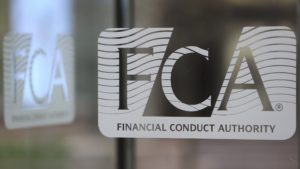
The last 18 months or so has seen a slight readjustment or nuancing of the FCA’s “credible deterrence” policy (which was all about tough, targeted and public disciplinary action with increasing fines and naming and shaming) that has been at the heart of the regulator’s enforcement strategy since 2008.
The FCA “Our Approach to Enforcement” document from March 2018 (https://www.fca.org.uk/news/press-releases/fca-sets-out-its-approach-supervision-and-enforcement) still refers to what might be perceived as the hallmarks of credible deterrence:
- Enforcement’s overriding principle being a commitment to achieving fair and just outcomes in response to misconduct; and
- Wrongdoers being held to account and the need for FCA rules and requirements to be obeyed.
But in the same document, the FCA recognises that increasingly severe penalties and sanctions alone are not enough on their own to reduce or prevent regulatory misconduct. The regulator has acknowledged the need to increase the risk of detection combined with investigations that are more efficient. Head of Enforcement Mark Steward has said that he wants the FCA to move towards “more multi-faceted approach to regulation”.
We are therefore seeing the FCA’s Supervision and Enforcement divisions looking to co-operate more closely, through improved liaison mechanisms, to increase the earlier detection of possible issues that could otherwise give rise to misconduct, to prevent harm before it occurs and to achieve better regulatory outcomes. This is in contrast to what some perceived previously as a somewhat siloed or linear approach from the regulator. It is also important to remember that, in general, supervisory activity is cheaper and quicker for the FCA than enforcement action that can be, by its very nature, hard fought and protracted.
So how is this playing out in practice?
- We have seen more supervisory action leading to restrictions or placing of requirements on firm’s activities or firms been subject to more intense FCA scrutiny over a period of time.
- There have been more variations (voluntary or FCA imposed) or cancellations of Part 4 permissions.
- The FCA is looking to firms to redress or compensate customers on a voluntary basis and at an early stage (which in turn could lead to disciplinary action that does not necessarily lead to a fine as the FCA recognises this could impede a firm’s ability to compensate customers).
Also, the FCA is opening more investigations, not all of which will end in disciplinary action as Chris Webber and Stephen Cole wrote about last week (https://www.finance-disputes.co.uk/2018/09/fca-caseload-at-record-levels-despite-dropping-more-cases-than-ever/ ).
Mark Steward has referred to a 75% increase in the number of FCA investigations as a result of more investigations into capital market disclosure issues and extension of the scope of the market abuse regime. But as Chris and Stephen noted this is also a reflection of a change in approach at the FCA in deciding whether to launch investigations against the comparatively lower threshold for doing so (circumstances suggesting misconduct or the FCA having a good reason to begin an investigation).
This of course also stems from the report into failure of HBOS when the FCA was criticised for not conducting more investigations into HBOS because the FCA did not think that the investigations would necessarily lead to successful enforcement action. So FCA may now investigate firms where it suspects serious misconduct may have occurred but not necessarily having assessed its prospects of success against all the evidence. Investigations are therefore increasingly diagnostic in nature and not just taking place where the evidence available strongly suggests to the FCA that regulatory misconduct has taken place.
The times then may be a changing at the FCA’s Enforcement Division but whether this is a seismic change or just a gentle shift only time will tell. As a final word, the FCA is working on a complete review of its Enforcement Guide and aims to publish a Consultation Paper next year.

